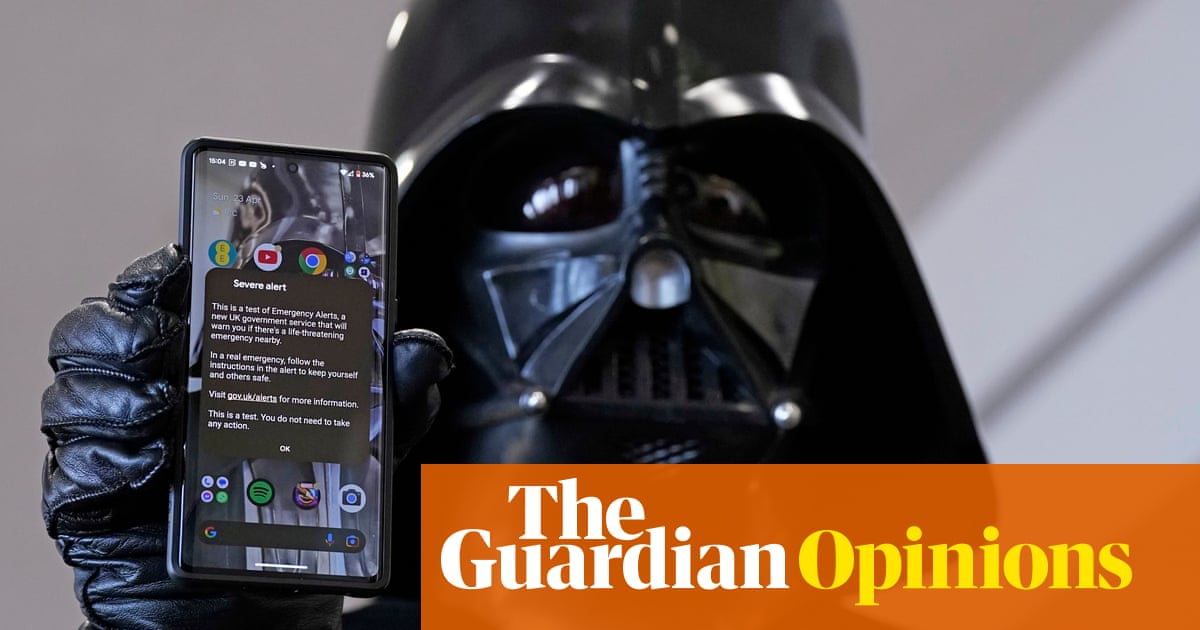This is undeniably a bad time to be Darth Vader. A few weeks ago,Tony Gilroy revealedthat Vader would not be appearing in hisAndorseries, despite fans assuming that he would play a significant part in its climax. A few days ago, the White House shared anAI-generated imageof Donald Trump as a confusingly musclebound Sith Lord, subtly undermining Vader as the go-to Star Wars baddie. And nowa woman has been awarded almost £30,000for being compared to him.
Yesterday, it was reported that NHS blood donation worker Lorna Rooke had received £28,989.61 from a Croydon tribunal after complaining that a colleague had taken a Star Wars-themed Myers-Briggs Type Indicator personality test on her behalf online, and then informed her that her results aligned with Darth Vader. This upset Rooke and made her feel so unpopular that she resigned one month later. “Darth Vader is a legendary villain of theStar Warsseries, and being aligned with his personality is insulting,” agreed the judge while announcing her verdict.
It seems to me that this is quite unfair on Darth Vader, and makes the assumption that he’s a baddie. True, the guy was no saint, but surely you can overlook some of his iffier tendencies, many of them involving genocide, and see his good points. He’s a snappy dresser, for one, and is fundamentally outcome-oriented. Although I don’t know the exact quiz taken, many sites label Vader as a classic INTJ or “architect”: a private, complex introvert who prides himself on his logic and ambition.Bobby Fischer was an INTJ, it is said. So was Jane Austen. And, sure, Elon Musk and Jack the Ripper, too, but let’s not dwell on the negative. It’s possible to be a Darth Vader type without being completely irredeemable.
There are far worse people to be compared to. I just took a Myers-Briggs test for the purposes of this article, and discovered that I am an INFJ, or an “advocate”. You know which character from Star Wars is an INFJ? Obi-Wan Kenobi. That is an objectively far worse result than being called Darth Vader. Obi-Wan Kenobi was rubbish. He wore a crap hoodie, had the world’s dullest, most low-energy lightsaber battle and then just sort of disappeared into his clothes instead of dying. Awful. Plus,other famous INFJsapparently include Adolf Hitler and the lead singer of the Red Hot Chili Peppers. This is so much worse than being Darth Vader and I feel horrible about it. If anyone deserves 30 grand here, it’s me.
Also, without wanting to undermine the sense of hurt that Rooke must have felt at this perceived bullying at the hands of her colleagues, a more pressing problem might be that, in her case, the online Star Wars-themed Myers-Briggs test may have got it wrong. It’s just that I know Darth Vader. I’ve watched everything he’s ever done. I consider myself a fan of his. And this deep understanding of the Vader psyche leads me to believe that he probably wouldn’t have quit his job as supreme commander of the Imperial Fleet just because someone took a gussied-up BuzzFeed quiz on his behalf.
Even if the quiz results were as bad as they could possibly be – which, in this instance, is to be compared to Darth Vader, which admittedly wouldn’t be so bad if you literally were Darth Vader – it’s a fair assumption that Darth Vader would have a full arsenal of healthy coping strategies to help him overcome his disappointment.
Actual Darth Vader would find the person who took the quiz and choke them out from across the room in front of their peers. He would have sliced them in half on top of some sort of implausibly dangerous gantry. If things were really bad, he might have exploded their entire home planet with his Death Star. What I’m trying to say is that he had plenty of options, and Lorna Rooke took none of them. Instead, she resigned from her job and opted for the path of statutory jurisdiction. This leads me to believe that she isn’t actually a Darth Vader type at all. The online Star Wars-themed Myers-Briggs Type Indicator personality test industry should be ashamed of itself.
